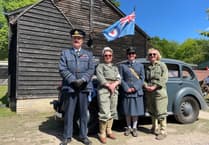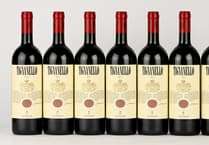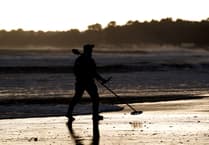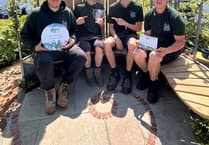THIS week, Peeps into the Past brings more memories of life at the Rowley Bristow Orthopaedic Hospital in Pyrford.
Brian Westen got in touch to say his father-in-law, Fred Billingsby worked at the hospital for many years, making splints and neck supports. Fred was, in effect, the right-hand man to surgeons Gordon Hadfield, Alan Apley and Franklin Simmonds.
Brian said Fred was originally from County Durham and was a very intelligent man, although he did not have much of a formal education. His two sons went to Woking Grammar School for Boys.
Fred must have had great faith in the surgeons he worked for as he underwent a double hip replacement operation – a rare thing at the time.
Alan Gadd emailed memories of his time being a patient at the Rowley Bristow.
He said: “I was nine years old when I was referred by Dr Bruce, our local doctor, as I had a long-term problem with a swollen knee.
“I went with my mum to the hospital in our neighbour’s motorcycle sidecar. My mum said it was just for a doctor to have another look at my knee, but that appointment led to me spending nearly three months in the children’s ward.
“I did not know it at the time but I had suspected tuberculous (TB). After a series of daily blood tests, I was taken up to the big house in my bed by electric trolley for an operation. It was a bit scary when I saw all the people in their gowns.
“After the operation it was found that I did not have TB but my left leg needed complete rest and it was put on traction for a few months.
“Life in the children’s ward was interesting. There were a few children who had cystic fibrosis and twice a day they were subjected to a thumping on their backs to extract a full cupful of fluid from their lungs. I remember their cries of ‘No more, no more,’ but the nurses had to do it to keep them alive.
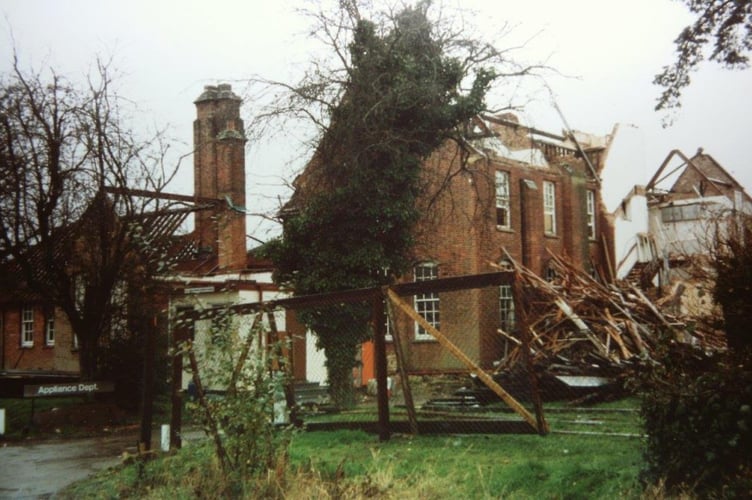
“After breakfast, which was usually a runny white scrambled egg (probably powdered egg) poured on toast from a jug (which I got to love and still like it runny now), we were wheeled out to an open area, although it had a roof, where we stayed all day whatever the weather. It was there we had lessons and lunch. Late afternoon we were wheeled back to our ward.
“One treat was to play a 78rpm record of Cliff Richard’s Living Doll, on the wind-up gramophone.
“Visiting was an hour in the afternoon and half an hour in the evening. As it was a difficult location to get to, I rarely had a visit in the afternoon during the week, though my parents came every evening which was more than some children had.
“One bonus of my autumn stay was that each time my grandmother came to visit me she bought a Christmas annual. I must have had every annual for that year – Beano, Dandy, Eagle etc. Any sweets were put in a bowl to be shared among all the children.
“The downside to being in hospital was after evening dinner we were given a large spoonful of malt, which was disgusting.
“When I was allowed home, I had to wear a leg calliper for six months. At school I was called ‘Chester’ after the sheriff’s deputy who had a stiff leg in the series Gunsmoke.
“On my first weekend out, the 1st Sheerwater Scout Group, of which I was a Cub, had a Christmas bazaar at the Sheerwater Community Centre. I remember the big crowds as Billy Fury and Alexander Gauge – Friar Tuck in The Adventures of Robin Hood television series) arrived by helicopter.
“It seems amazing now how long my stay was in hospital. I am sure it would not happen nowadays.”
If you have some memories or old pictures relating to the Woking area, call David Rose, on 01483 838960, or drop a line to the News & Mail.
David Rose is a local historian and writer who specialises in what he calls “the history within living memory” of people, places and events in the west Surrey area covering towns such as Woking and Guildford. He collects old photos and memorabilia relating to the area and the subject, and regularly gives illustrated local history talks to groups and societies. For enquiries and bookings please phone or email him at: [email protected]

